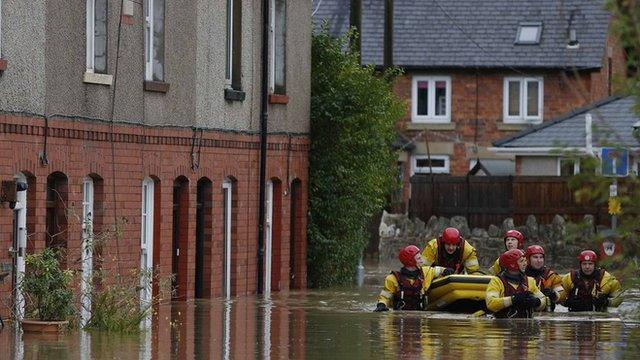Wales 'needs more climate change plans', study warns
- Published
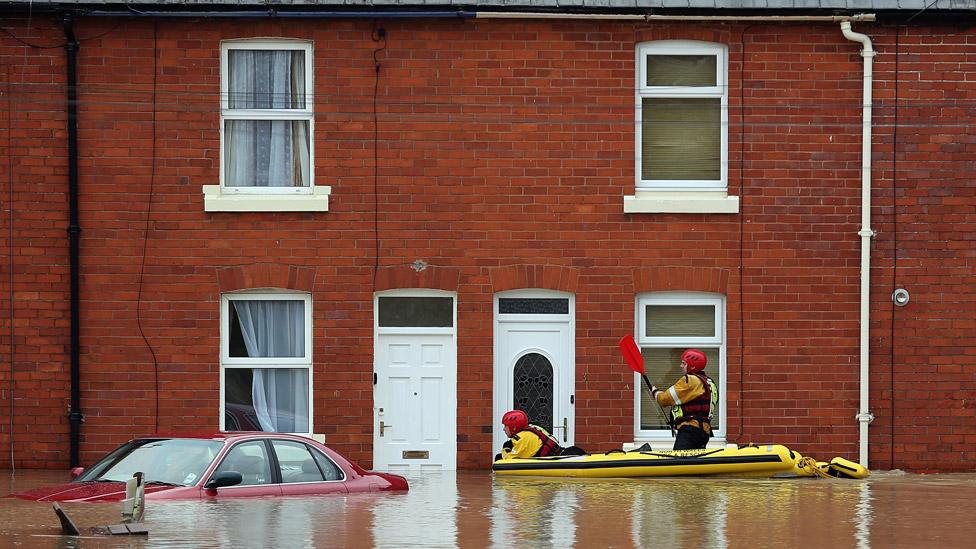
St Asaph flooding in 2012
More action is needed in Wales to plan for risks posed by climate change, a study by UK government advisers has warned.
It identifies gaps in future plans and spending commitments around flood risk, management of natural resources and the impact on public health.
Policies "do not exist at present" to adapt homes or other buildings to deal with projected higher temperatures.
The Welsh Government has welcomed the report and said it was taking action.
The UK Climate Change Risk Assessment Evidence Report took over three years to write and involved hundreds of leading scientists.
It sets out the most urgent risks and opportunities arising from climate change, with a summary for each devolved nation including Wales.
The 2,000-page study is by the Committee on Climate Change (CCC), an independent body set up by the UK government.
It included looking at areas such as future flood risk, the effect on natural resources, people, buildings, business, farming and wildlife, as well as looking at security issues and extreme climate change scenarios.
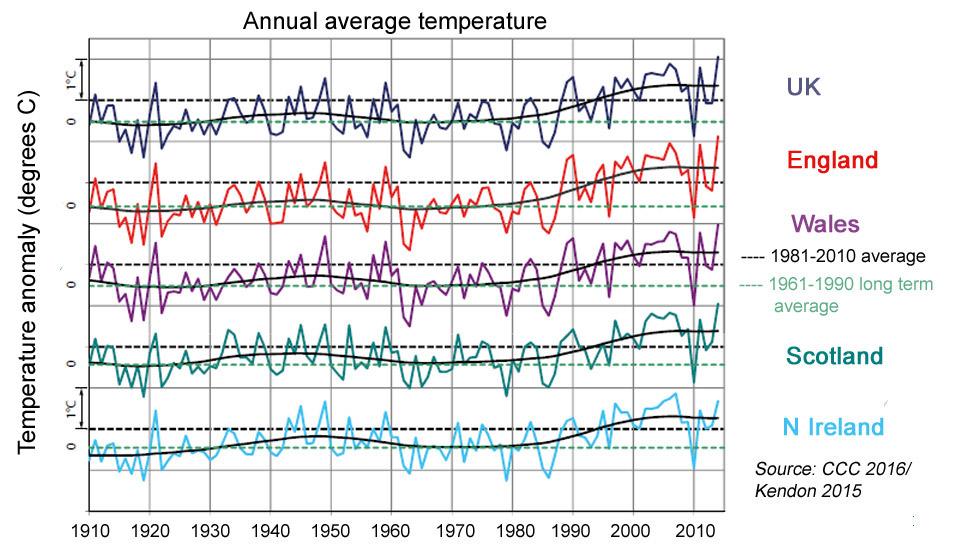
All ten of the warmest years in the UK annual average temperature record have occurred since 1990
The report says the impacts of climate change are already being felt in the UK. Globally, 14 of the 15 hottest years on record having occurred since 2000.
Changes to the climate in Wales are likely to include periods of too much or too little water, increasing average and extreme temperatures and a sea-level rise
Opportunities could include farmers being able to increase production in a warmer climate, but only if risks to soil and water supply are managed
The impact on coastal infrastructure could be severe, with ageing roads and railways under threat
Meanwhile, the effect of higher temperatures on users of public transport should be "a research priority" in Wales, following work done in London and other major English cities
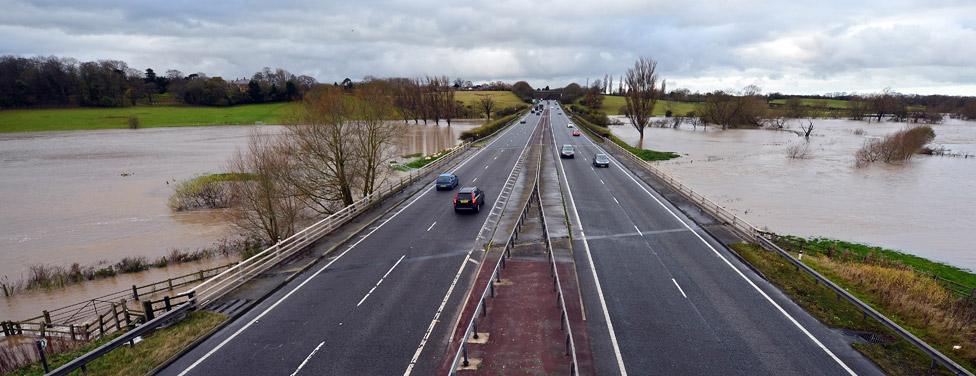
The River Clwyd with burst banks in Denbighshire
Prof Lord John Krebs, chairman of the CCC's Adaptation Sub-Committee, told BBC Wales the risks the country faced were similar to those across the UK but that "poor quality infrastructure" was an issue.
"Wales is one part of the country with a lot of poor housing stock and we need to look at how we make those homes more resilient."
But Prof Krebs, once a zoology lecturer at Bangor University, said Wales was getting off to "a very good start" when it came to confronting the challenges posed by climate change.
He described the Welsh Government's Wellbeing of Future Generations Act, external as "a very good framework for working on this".
The Act obliges public bodies in Wales, such as local councils and the NHS, to consider the long-term impact of every decision they make on efforts to tackle climate change among other things.
The CCC reviewed current evidence and commissioned new research for this report.
Ministers in Westminster now have to formally respond with plans to tackle the issues raised, while the Welsh, Scottish and Northern Irish governments will also use the information to strengthen and develop their own laws.
The UK government has to compile risk assessments on climate change every five years and this will be presented to Parliament next year, external.
Sophie Howe, Future Generations Commissioner for Wales, said infrastructure in Wales must be "fit-for-purpose" and take account of future changes, including heat and severe weather events.
"More than 60% of people in Wales live and work near the coast, including in all our major cities and many important towns," she said.
"Already 222,000 homes are at risk of flooding and that figure is likely to increase together with the £200m estimated cost of putting it right.
"Flooding and coastal change must be seen as a priority with agencies working together to protect communities."
A Welsh Government spokesperson welcomed the report, saying it would will take time to consider its findings.
"We are aware of the importance of building resilience in our homes and communities, which is why we are taking measures to better protect these from the affects of climate change in the future.
"For example, we are investing almost £55m in flood defences this year alone.
"We have also strengthened legislation through our Environment (Wales) Act, external and Well-being of Future Generations Act to reduce the impacts of climate change and ensure the long-term risk from climate change are considered in decisions made by public bodies."
- Published12 July 2016
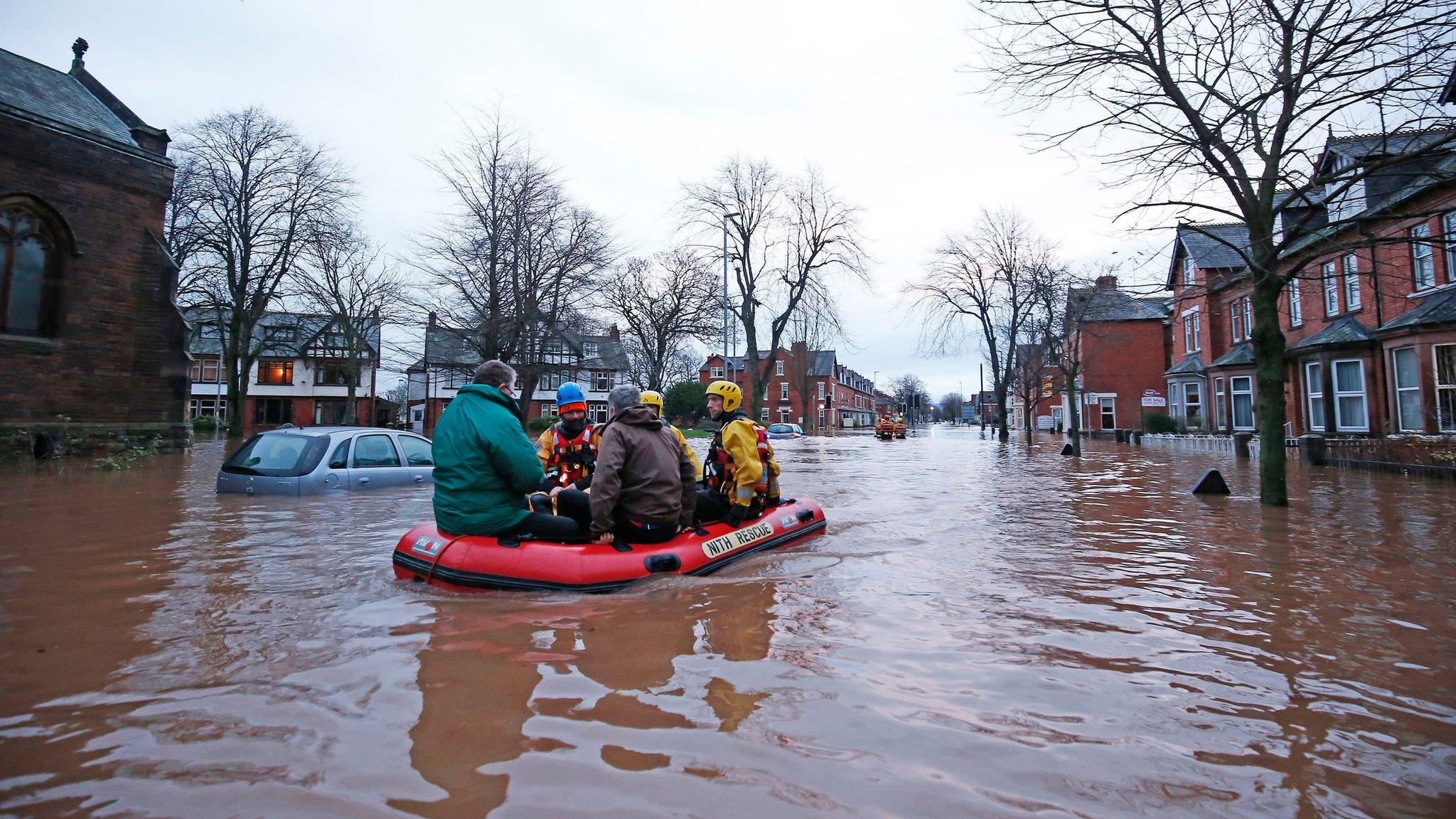
- Published30 June 2016

- Published28 June 2016
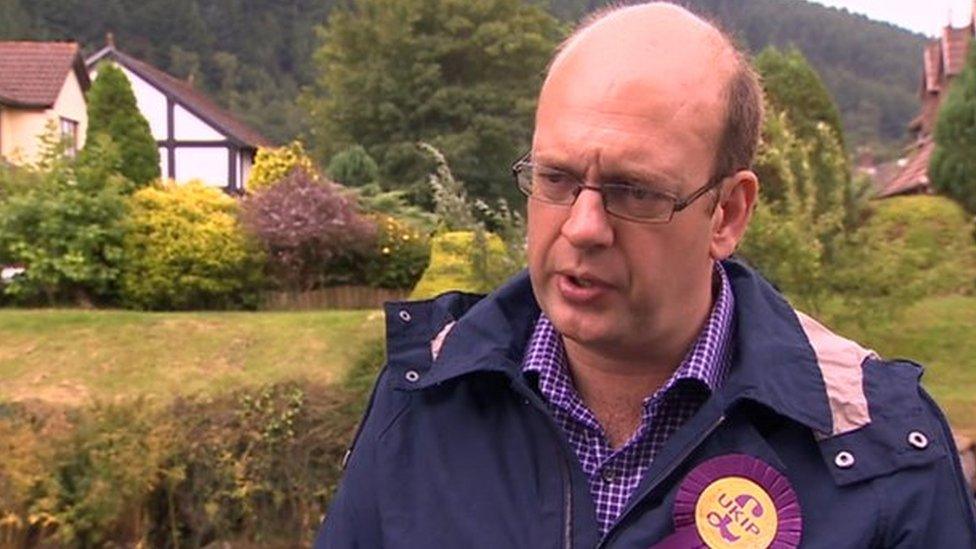
- Published2 February 2016
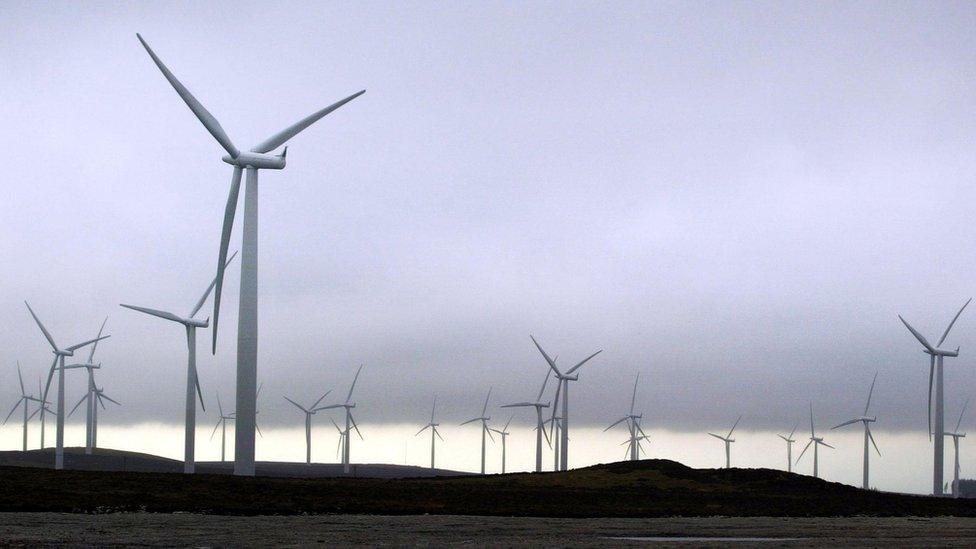
- Published12 January 2016

- Published10 February 2016

- Published29 November 2012
